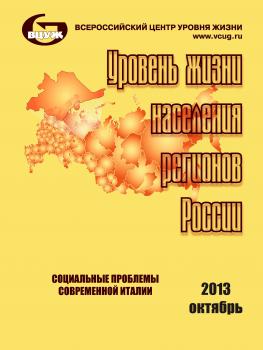Relevance. The strategic goal of the state — giving the economic development of Russian innovative nature — cannot be achieved without a radical increase of competitiveness of Russian science, its extension to world leadership, the growth of its effectiveness. In this regard, studies to improve the quality of work in the field of research and development are of particular interest. Subject of the Study. Analysis of the process to promote scientific and research work as a mechanism for management quality level of work performance, identifying specifics of stimulating R & D work and determining approaches to the incentive system in the field of R & D. Problem. The concept of quality of work, and the problem of its increase. Legend of the predicates of quality of work: a) the complexity of the work, b) the content of the work, c) qualifications of the employee, g) the intensity and productivity of labour, d) the results of work, e) working conditions. Classification definitions: 1) the quality of work as the quality of labor (K Marx, LS Blyakhman, VA Sidorov, LV Krivenko, Frenkel’ Gomberg, etc..) 2) the quality of work as the labor process, the differences between certain types of work (S Beam, J Kotlik, IT Korogodin, KI Kurowski, EI Yevseyenko, E. Shapiro, and OL Guzakova, etc..) 3) quality of work as the results of labour (VN Belkin, MY Ivanov, AN Azriliyan etc.).
quality of labour, stimulating labour, R & D, scientists, scientific organization, the result, the quality of work performance, evaluation criteria.
1. Специфика стимулирования научно-исследовательского труда
Ключевые понятия в анализе специфики научно-исследовательского труда — потребность, мотив и стимул. Стимулирование принципиально отличается от мотивирования и выступает одним из средств мотивирования, а процесс мотивации крайне сложный и неоднозначный [Виханский, Наумов, 2009, 2].
Стимулирование труда — это внешнее побуждение, элемент трудовой ситуации, влияющий на поведение человека, материальная оболочка мотивации работников. Оно несет и нематериальную нагрузку, позволяя работнику реализовать себя как личность и работника. А.И. Пригожин, определяя стимулирование как «метод воздействия на трудовое поведение работника, опосредованно через его мотивацию», указывает, что «подход к проблеме трудового стимулирования состоит в выделении и сопоставлении, с одной стороны, системы стимулов, с другой — системы мотивов и потребностей» [Пригожин, 1995, 2]. Стимулирование эффективно, если согласуются эти две системы и вызывают целесообразное для организации трудовое поведение работника.
1. Zhukov A.L. Audit stimulirovaniya truda i motivatsii personala [Audit work stimulation and motivation]. Trud i sotsial’nye otnosheniya [Labour and Social Affairs]. 2009, I. 11.
2. Vikhanskiy O.S., Naumov A.I. Menedzhment [Management]. Moscow, Ekonomist” Publ., 2006.
3. Prigozhin A.I. Sovremennaya sotsiologiya organizatsiy [Modern sociology of organizations]. Moscow, 1995.
4. Kibanov A.Ya. Upravlenie personalom organizatsii [Personnel Management Organization]. Moscow, Infra-M Publ., 2004, pp. 490-491.
5. Adams J. S. (1965). Inequity in social exchange. L. Berkowitz (ed.). Advances in experimental social psychology. New York: Academic Press.
6. Locke E.A., Latham G. P. (1990). A theory of goal setting and task performance. Englewood Cliffs, NJ: Prentice-Hall.
7. Smith K.G., Locke E. A., Barry D. (1990). Goal setting, planning, and organizational performance: An experimental simulation. Organizational Behavior and Human Decision Processes, 46(1): 118-134.
8. Vroom V.H. (1964). Work and Motivation. New York: Wiley.
9. Bobkov V.N. Uchastie evropeyskikh uchenykh-gumanitariev v reshenii natsional’nykh i global’nykh sotsial’nykh problem [Participation of European scholars in the humanities in addressing national and global social problems]. Uroven’ zhizni naseleniya regionov Rossii [Living Standards of the Population in the Regions of Russia]. 2013, I. 10 (188), pp. 7-10.
10. Novoselov E.I. Ital’yanskie uchenye-gumanitarii - za regulirovanie rynochnoy ekonomiki [Italian scholars in the humanities - for the regulation of the market economy]. Uroven’ zhizni naseleniya regionov Rossii [Living Standards of the Population in the Regions of Russia]. 2013, I. 10 (188), pp. 29-33.
11. Bashmakov V.I. Sotsiologicheskie aspekty razvitiya chelovecheskogo potentsiala organizatsii [Sociological aspects of human development organization]. Uroven’ zhizni naseleniya regionov Rossii [Living Standards of the Population in the Regions of Russia]. 2013, I. 11 (189), pp. 107-113.
12. Bobkov N.V., Dolgov V.G. Problemnye klastery oplaty truda i ikh vliyanie na neravenstvo sotsial’no-ekonomicheskogo polozheniya rabotnikov []Problematic clusters wages and their impact on inequality of socio-economic status of employees. Uroven’ zhizni naseleniya regionov Rossii [Living Standards of the Population in the Regions of Russia]. 2013, I. 12 (190), pp. 6-10.
13. Orlov I.B. Teoreticheskie osnovaniya gosudarstva sotsial’nogo gumanizma [The theoretical foundation of the state of social humanism]. Uroven’ zhizni naseleniya regionov Rossii [Living Standards of the Population in the Regions of Russia]. 2013, I. 3 (181), pp. 37-42.
14. Berezutskiy Yu.V. Sotsial’noe razvitie molodezhi dal’nevostochnogo regiona v sotsiologicheskom izmerenii [Social development of young people in the Far East region sociological perspective]. Uroven’ zhizni naseleniya regionov Rossii [Living Standards of the Population in the Regions of Russia]. 2013, I. 1 (179), pp. 95-100.
15. Zharova N.V. Sravnitel’nyy analiz sistem oplaty truda v byudzhetnom sektore ekonomiki [Comparative analysis of wages in the public sector of the economy]. Uroven’ zhizni naseleniya regionov Rossii [Living Standards of the Population in the Regions of Russia]. 2013, I. 7 (185), pp. 81-90.
16. Rakitskiy B.V. Sovremennye nauchnye i prakticheskie podkhody k problematike truda protiv ustarevshikh i besperspektivnykh podkhodov [Modern scientific and practical approaches to the problems of labor against obsolete and unpromising approaches]. Uroven’ zhizni naseleniya regionov Rossii [Living Standards of the Population in the Regions of Russia]. 2013, I. 6 (184), pp. 50-58.
17. Rogozhnikova Yu.S. Analiz rossiyskoy praktiki oplaty truda v proektno-izyskatel’skikh organizatsiyakh [Analysis of the Russian practice of payment in design organizations]. Uroven’ zhizni naseleniya regionov Rossii [Living Standards of the Population in the Regions of Russia]. 2013, I. 2 (180), pp. 106-108.
18. Stolyarova A.V., Vashalomidze E.V. Optimizatsiya struktury i soderzhaniya kvalifikatsionnykh trebovaniy k professional’nym znaniyam i navykam gosudarstvennykh grazhdanskikh sluzhashchikh [Optimization of the structure and content of the qualification requirements for professional knowledge and skills of civil servants]. Uroven’ zhizni naseleniya regionov Rossii [Living Standards of the Population in the Regions of Russia]. 2013, I. 1 (179), pp. 121-129.





